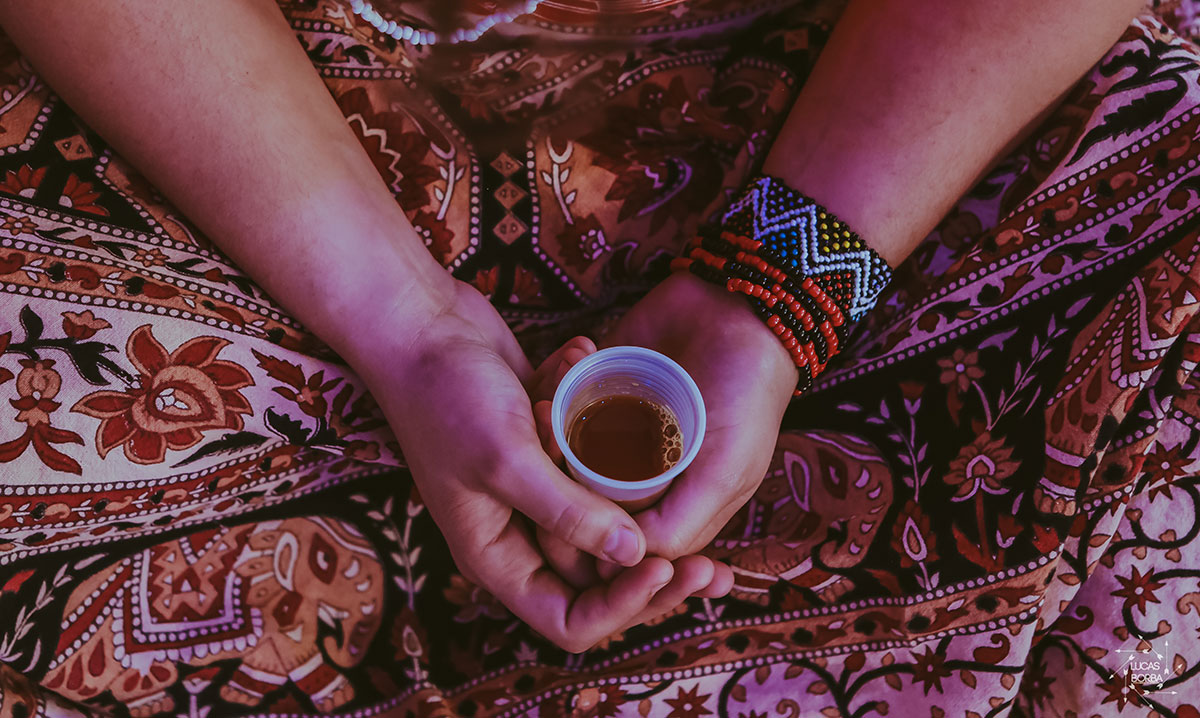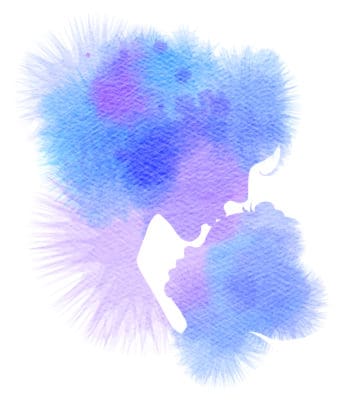Medical Editor: Dr. Lynn Marie Morski, MD, Esq
It’s no secret that the world’s population is in a mental health crisis. Studies report that rates of depressive symptoms in the US tripled over the course of the Covid-19 pandemic. In the US alone, it’s estimated that 16.2 million adults experience one major depressive episode each year.
While many people have found relief in traditional treatments such as psychotherapy and antidepressant medication, this is not the case for everyone that suffers from depression. More people are turning towards psychedelics to relieve depressive symptoms, including ayahuasca, the sacred Amazonian hallucinogenic brew.
Ayahuasca has been used ceremonially by indigenous communities native to the Amazon for hundreds, perhaps thousands of years, and is typically made into a tea by mixing the ayahuasca vine (Banisteriopsis caapi) and the leaves of the chacruna shrub (Psychotria viridis).
The tea, which is usually administered during a ceremony under the supervision of trained practitioners and/or healers, produces a powerful psychological and physical experience. Participants may undergo intense hallucinations and purging in the form of vomiting, crying, sweating, diarrhea, or laughing.
Amidst the multitude of anecdotal reports and burgeoning research, it’s becoming more evident that even a single dose of ayahuasca can help people overcome mental health struggles including anxiety, substance dependencies, and depression. However, anyone considering this path should ensure proper preparation first and carefully assess the potential risks.
So what is it about this hallucinogenic brew that’s allowing people to break free from their depressive symptoms and create long-lasting change?
Ayahuasca: Getting to the Root
Sometimes described as years of therapy condensed into a single night, ayahuasca has led to countless stories of relief from mental health struggles, feelings of wellbeing, and a sense of connectedness in ceremony participants.
This was the case for Ivaylo Govedarov, a Colombia-based ayahuasca and plant medicine ceremony facilitator who spoke to Psychable about his experiences. Having spent years in a depressed state following the passing of his mother, Govedarov sought out ayahuasca with the hopes that it would bring new meaning to his life.
“I was waking up every day with a pit of anxiety in my stomach, and regularly wondering what the point of carrying on with life was,” said Govedarov. “Ayahuasca helped me turn this around. During one ceremony in particular, while trying to connect with my mother, a beam of light appeared coming from within me and got bigger and bigger until it became an upwards flowing river of light.”
“Everything in the world was light, I experienced myself as light, and I felt a very deep sense of unity with life. At that moment, I knew everything was possible. Anything I put my mind to, I could achieve it,” explained Govedarov.
“I connected to a deep sense of wellbeing and for the first time felt like, ‘wow, I can do this.’ While I knew I still needed to do the work to apply the lessons, the experience gave me back my sense of optimism and allowed me to realize that happiness was possible.”
One thing that comes up time and time again in anecdotal reports is the way in which ayahuasca can force participants to confront their fears and past traumas. Rather than simply putting a band-aid on the symptoms of depression, with the help of ayahuasca, many participants are able to get to the root causes of their ills and make long-lasting changes in their lives, alongside post-retreat support and integration.
Ayahuasca and Depression: What Does the Research Say?
The long list of anecdotal accounts in recent years has led scientists to explore the benefits of ayahuasca for people who struggle with mood disorders. While by no means exhaustive, research on the promise of ayahuasca to help treat depression shows definite promise.
An April 2021 study, conducted from 2017-2020 and involving 11912 people, examined the perceived effects of ayahuasca on symptoms of anxiety and depression. 78% of participants said their depression was either “very much” improved or “completely resolved.” The study found that there were remarkable benefits for those who drank ayahuasca in naturalistic settings, with no clear negative effects associated with long-term consumption.
Participants in this 2015 study who suffered from recurrent depression cited reductions of up to 82% in depressive scores, taken 1, 7, and 21 days after the ayahuasca experience. The study’s results indicated that ayahuasca has fast-acting anxiolytic and antidepressant effects in patients with a depressive disorder.
Another study, conducted by a team of Brazilian scientists, discovered that ayahuasca consumption holds promise as a fast-onset treatment for treatment-resistant depression. The team ran a parallel-arm, double-blind randomized placebo-controlled trial and observed significant antidepressant effects of the Amazonian brew in participants, concluding that the study shows evidence for the therapeutic value of ayahuasca.
Further research published in 2020 also discovered promising results. The study found that 80% of first-time ayahuasca drinkers who had a psychiatric disorder showed clinical improvements six months after consumption. Not only that, but long-term users of the plant brew (in a separate sub-study) exhibited lower depression scores and higher scores for quality of life and self-transcendence than the naïve group.
The existing research is encouraging, although far from conclusive. Further double-blind and placebo-controlled trials must be conducted to explore the benefits of ayahuasca to treat different types of depression.
Amidst the excitement, however, we must consider the risks associated with taking ayahuasca, especially for people with psychiatric conditions.
What Are the Risks Associated With Ayahuasca?
There are some people who should not drink ayahuasca—or should at least think twice about it.
People with psychotic or bipolar illnesses (or those who have a family history of them) should generally avoid psychedelics, including ayahuasca. Due to its tendency to bring up past traumas, people who suffer from post-traumatic stress disorder (PTSD) should proceed carefully with ayahuasca, although there have been many examples of profound healing in people with PTSD, especially within the veteran community.
Anyone who is on SSRIs should avoid drinking ayahuasca until they have been off the medication completely for at least two weeks. Tapering down medication should be done under the supervision of a medical professional. MAOI antidepressants are similarly contraindicated with ayahuasca. There are also a number of foods and other substances which should be avoided prior to an ayahuasca ceremony, which you can read about here.
Another risk associated with drinking ayahuasca is its legal status. In some countries (like those in South America) ayahuasca is legal or is found in a legal grey area. In the US, however, ayahuasca is a Schedule 1 controlled substance because it contains the psychedelic substance dimethyltryptamine (DMT).
Closing Thoughts
Those who seek out healing from ayahuasca should avoid thinking of the experience as a “magic bullet”—that all their problems will be solved after a single cup. There’s no guarantee that a person will have a transformative experience in their first—or even tenth—ceremony.
With proper preparation, integration, and support, however, the potential of ayahuasca to relieve depressive symptoms is promising. Anyone going to an ayahuasca retreat must ensure they take the necessary steps to physically and mentally prepare, and it’s advisable to follow some kind of integration support structure after the experience, too.
Interested in reading more about ayahuasca? Check out our Beginners Guide to Ayahuasca here.







